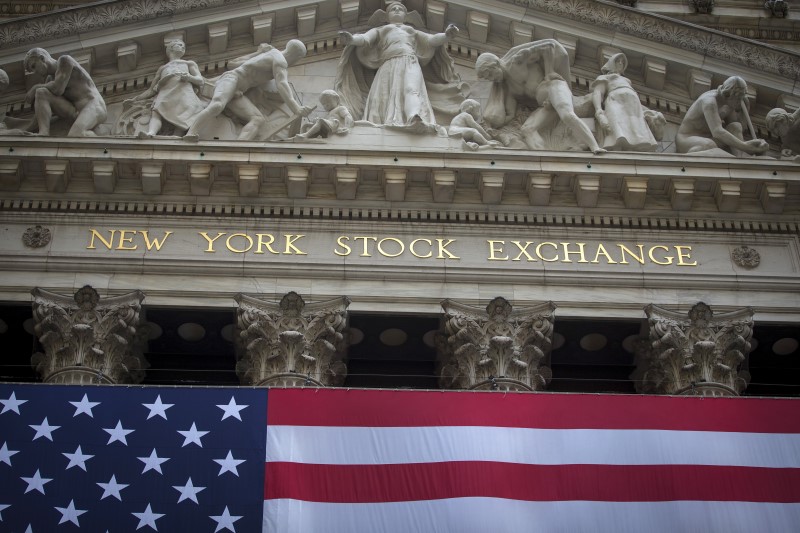By Chuck Mikolajczak
NEW YORK (Reuters) - The U.S. stock market has more than tripled in value since its March 2009 lows but stock splits, a tool favored by company management in prior boom times, have yet to make a comeback.
Stock splits are a way for management teams to tempt retail investors to buy a "hot" stock at a lower price.
For example, high-flying Apple Inc (O:AAPL) shares proved much more popular at $100 each after a 7-for-1 split in June 2014 than they were at $700, even though their value, by all measures, remained constant.
But now companies like Priceline, selling at a share price near $1,300, and Amazon.com (O:AMZN), which last split in 1999 and trades at about $660, are resisting similar moves.
The lack of enthusiasm for splits may be a sign of lower confidence among management teams given today's lower growth environment, and a trend towards stock buybacks.
"It's kind of gone out of fashion," said Stephen Massocca, chief investment officer at Wedbush Equity Management LLC in San Francisco.
With weaker earnings performance now than a decade ago, managers may be unwilling to dilute the number of shares they trade lest the split backfires and the share price becomes too low to sustain solid trading and valuation metrics, analysts say.
DILUTION CAUTION
A weak earnings quarter could look worse against diluted shares, and companies with share prices that fall into low single digit pricing could risk delisting - or be blocked from selling their shares to margin buyers.
According to data from Standard & Poor's though Nov. 17, there have only been 10 stock splits for S&P 500 (SPX) components in 2015, down from the 83 registered in 2000. The average stock price in the index has nearly doubled in that time, from $43.12 in 2000 to $82.13.
Nike (N:NKE) is set to become the eleventh component after announcing a two-for-one split after the close on Thursday.
As the average stock price has risen, so have the number of components with heftier prices, with 114 issues over $100 per share compared with only 12 in 2000, yet companies remain reluctant to split.
Priceline.com (O:PCLN) would seem a likely candidate for a split. In the company's history, it has only executed a one-for-six reverse split in June 2003 in an effort to prop up its stock price.
Company spokeswoman Leslie Cafferty told Reuters Priceline has "no immediate plans to split the stock but it's something we look at from time to time," while adding they haven't felt the need for a split to date.
BUYBACKS DOMINATE
Management teams now favor share buybacks as the preferred corporate action as they serve to increase earnings per share while putting to use large cash reserves.
FactSet Research data shows S&P 500 companies used 5.3 percent of their cash towards share repurchases in 2000. That number has climbed up to 6.8 percent over the past four quarters.

"Companies by and large, though constructive on guidance, buybacks and earnings, at the board level, are tepid about diluting the value of the shares on a per share basis," said Peter Kenny, equity market strategist at Kenny & Co LLC, in Denver. "It does speak to management caution."